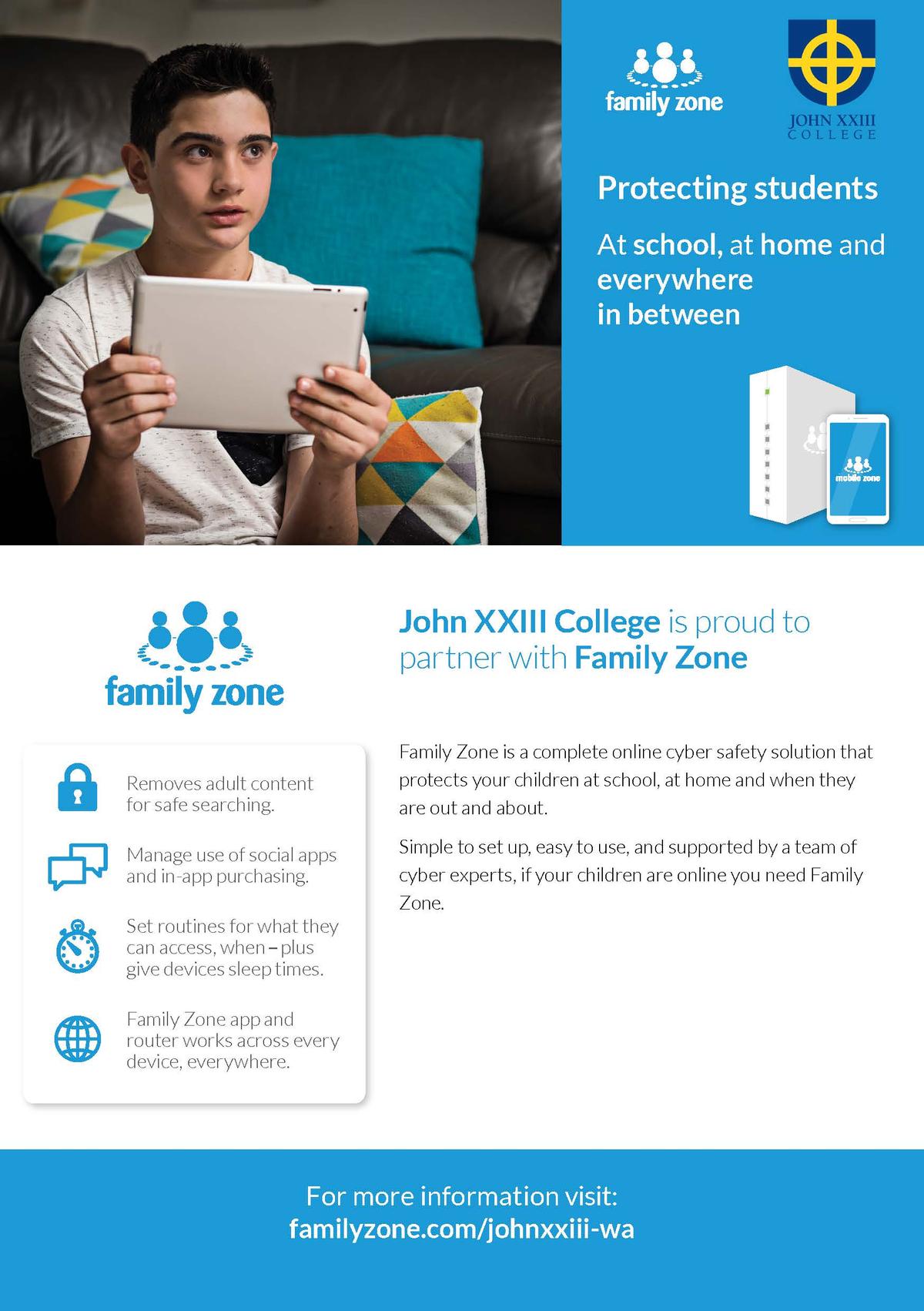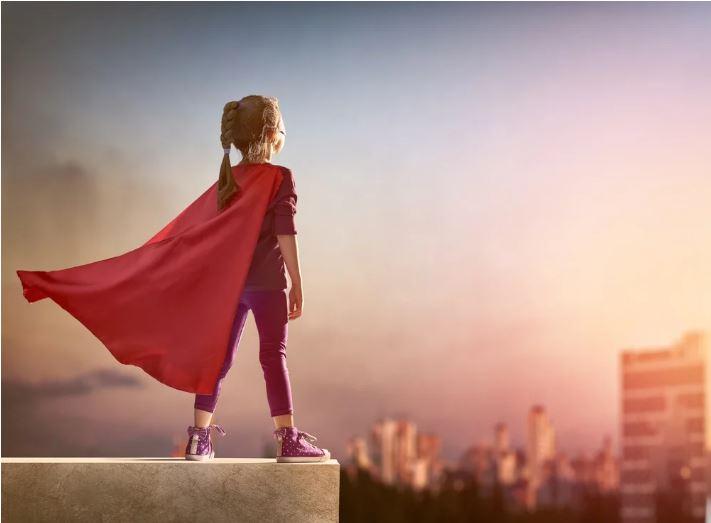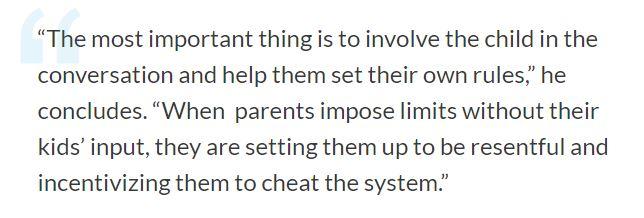Family Zone & Cyber Safety

Download Family Zone
Make use of the Family Zone Accounts which we are offering to John XXIII College families for free, as part of our College contract negotiations until 2020.
By setting up a private Family Zone account, you can apply age-appropriate parental controls on every device your child has access to, in any location. To find out more visit https://www.familyzone.com/johnxxiii-wa
Family Zone Webinar recordings
For those that were unable to make the Family Zone webinars, we have recorded both sessions for you to view in your own time, and they are available here: https://www.familyzone.com/johnxxiii-wa
Webinar topics are:
- Getting Started with Family Zone
- Advanced with Family Zone
The superpower your digital kid needs most of all
In the future, there will be two kinds of people in the world. Those who allow their attention - and their lives - be controlled by outside forces. And those who proudly call themselves “indistractable.” Which will your child grow up to be?
Resisting the siren song of distractions has been a challenge for human beings ever since the first Monday morning. But in the digital age, with limitless options for information, entertainment and connection literally at our fingertips, we've reached a while new level of risk.
And it's striking at younger targets than ever before, in a generation where children are swiping devices before they can walk or talk - and chucking “techno-tantrums” whenever parents, or life, get in the way.
Needless to say, It’s an issue for mum and dad too - as author, tech entrepreneur and Stanford academic Nir Eyal is well aware. Eyal's latest book, Indistractable: How to control your attention and choose your life, was inspired by an incident when his phone distracted him from connecting with his five-year-old.
“I was with my daughter one afternoon and we had this book that listed activities for daddy-daughter time,” he remembers. “The book had one particular question that caught our eye. The question was ‘If you can have any superpower, what would you choose?’
What's your superpower?
“My daughter answered that question, but I was not paying any attention to her answer. I was busy with my phone and I was distracted. When I looked up from my phone, she had already left the room. She got the message that she was less important than my phone. She just left me to play outside.”
Uh oh.
Eyal began his exploration into distractability by examining his own behaviour. In the process, he had an epiphany: Becoming indistractable, he realised, may be the true superpower for the 21st century - and it’s one that most parents are failing to teach their children.
But how?
Building indistractability
Eyal believes the secret is empowering kids to monitor their own behaviour, even from a very young age, and to learn to set their own boundaries.
By the age of five, Eyal’s own daughter was whining for screen-time constantly. So he and his wife came up with a radical strategy.
They asked her how much screen-time she thought she should have. To their surprise (and relief) she did not say “all day.” Instead she proposed “two shows,” or about 45 mintues a day.
Mum and dad were delighted to comply. And they made it easier for their daughter to stick to her own boundaries by using a kitchen timer. Now that she’s a bit older, she asks Alexa to keep time for her.
Parental controls are another way kids can be empowered by enforce their own boundaries.
Media literacy 101
Eyal also advocates teaching children to be media literate from a young age. And that includes explaining to them that content developers are experts at getting kids hooked on viewing and playing - and that their motivation for doing so is profit. (It's a fact that's obvious to the grown-ups, but often comes as a shock to children.)
He ought to know. His previous book, Hooked: How to build Habit-Forming Products, has been described “as an operating manual for designing products that their customers can’t put down.”
Addiction - or learned helplessness?
Interestingly, he rejects the notion that technology is addictive. What we’re really addicted to, he insists, is “this idea that we're limited, that there's nothing we can do in the wake of this force. This fosters learned helplessness.
“‘Big bad tech companies are doing it to me. They're doing it to my kids. What can I do about it? I'm powerless. Unless the government regulates these companies there's nothing I can do.’
“And that's nonsense. That’s why I wrote an entire book full of things you can do to fight this, things that actually really aren’t that hard.”




